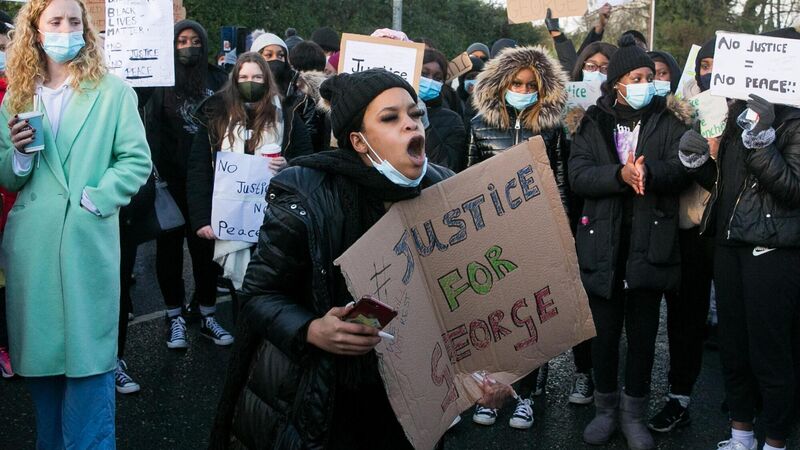Anger in West Dublin at shooting of George Nkencho

Gillian Anyanwu from Blanchardstown during a protest at the shooting of George Nkencho at Blanchardstown Garda Station, Dublin. Picture: Gareth Chaney/Collins
Anger, in its various guises, was the prevailing mood on a grey day in west Dublin.
Offended anger. Furious anger. Solemn anger.










